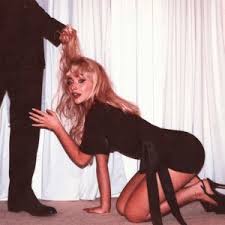The saying “boys will be boys” originated from deeply rooted misogyny to defend horrid actions made by men. If boys will be boys by disrupting the public and ruining children’s experiences, I don’t think that boys should just be boys.
Jack Black’s performance in the new “A Minecraft Movie” has brought a lot of attention towards a certain line: “chicken jockey.” The scene has become a meme, celebrating Black’s rendition of Steve and the amount of memeable quotes.
But said line has involved an abundance of teenage boys screaming it and celebrating, which has turned into throwing drinks, popcorn, and bringing live chickens to the theater.
Such disruption has sparked great backlash among parents and movie theaters across the country. These boys aren’t cleaning up after themselves, creating huge messes of popcorn, and being such a disruption that authorities have been called. Boys have gotten escorted out, movies have been paused, and children have gotten drenched in food and soda.
And on social media apps such as TikTok, these acts have been celebrated. Fellow teenagers have laughed at these videos and ranked them based on how messy and loud they were.
These acts have been compared to how most children and Swifties have reacted during Taylor Swift’s “Eras Tour” movie or concert. After the movie came out, watchers were seen singing along and dancing to songs in the theater. Women and girls on social media have noticed double standards on how they are treated based on reactions and celebrations.
They cleaned up the rare messes they made, and were quiet enough to not disturb other theaters. But on social media, there were men and boys berating them for being “crazy” or “weird” fans. Some call Swifties a cult, when it’s just celebrating women.
“I made a fit check on TikTok with my friend at the concert, and I did get a few hate comments saying it was gay to be there and that I was weird for liking Taylor Swift,” freshman Santonio Holmes said.
“People were calling me whitewashed and basic for liking Taylor Swift and going to her concert,” said freshman Cyniah Oday.
Not only is Taylor Swift put into a stereotypical group as “white girl music,” but people of color are being targeted and insulted for a subjective music preference.
According to Meduim, “Music taste is subjective, meaning it is influenced by personal experiences, emotions, and cultural backgrounds.”
The very meaning of subjectivity is opinions and feelings. If people can’t handle another’s personal experience, then it defeats the whole purpose of music. Historically, music has been a storyteller of cultural and political use.
Music has been used to protest oppression and poets have used words to express philosophies and morality of different exposure.
Swift focuses more on the experiences of women and men attacking her fans in racist, sexist, and homophobic ways simply because an opinion has caught my eye.
Taylor Swift herself has been a controversial topic; her songs and influence on femininity has been worldwide. Of course, toxic masculinity has thus followed the influence and decided that she is “weird,” a “horrible singer,” and even making remarks to her looks and body.
There have always been men discrediting successful women if they didn’t fit their physical type and standards. For some reason, talented and smart women are often ranked by how beautiful they are. But for some other reason, men who don’t fit modern beauty standards, like “A Minecraft Movie” star Jack Black, are cheered for it, and Black isn’t seen as fat-just funny-whereas women who are fat have to be funny. The comparison has always dehumanized women to fit the male gaze. We always have to be attractive, or else we have no value.
Swift’s influence worldwide has been criticized by people everywhere, especially online, for embracing feminism, heartbreak, and activism. Her relationship with NFL star Travis Kelce has further dirtied her reputation for men. Football fanatics either say her appearances on television have ruined the NFL, or they have decided to start hating on the Chiefs for embracing their relationship, even though their relationship has made more people watch football.
Lots of boys have also blindly followed the crowd, not even having a valid reason for hating her besides the occasional “her music is bad!” or “she’s adding to climate change!” And it’s sad, because the only time they care about climate change is when women add to it.
But Swift is a lyrical genius to me. The few songs I genuinely listen to resonate with me and tons of other girls worldwide. They’ve saved people, helped women through hard times, and are safe places. “A Minecraft Movie” was made for nostalgia, but these jokes have gone too far, harming families and employees.
The centuries-long double standard for women of being calm, collected, and elegant has followed into these pop culture trends. These teenage boys are celebrated for their disruption of property, families, and the public, while young girls and women are judged for having fun respectfully. The idea of staying ‘seen and not heard’ compares to the modern rooted misogyny in our society: we can’t be too loud or else we’ll be too obnoxious, but if we’re too quiet, we’re disrespectful and don’t value what we should be appreciating.
The difference in how men react shows their immaturity and idea of male superiority, along with their view of how women are supposed to act; almost as if their opinion actually matters to how women should act. To them, it’s only okay if men celebrate in these ways, because they’re the only ones who are socially allowed to act like that.
Chicken jockey started as a simple joke, but it escalated to where these boys acted straight-up crazy, and it wasn’t taken that seriously by the media. But, God forbid, if you like Taylor, you’re the worst kind of human being on the planet.
Women and Swifties don’t deserve that.
Instead, we need to focus on the harm this toxic ideology does to pre-teens and children of any gender and how it would affect the way they treat women in the future. Because girls just wanna have fun, but in ways that shouldn’t have unsolicited judgement from men.









